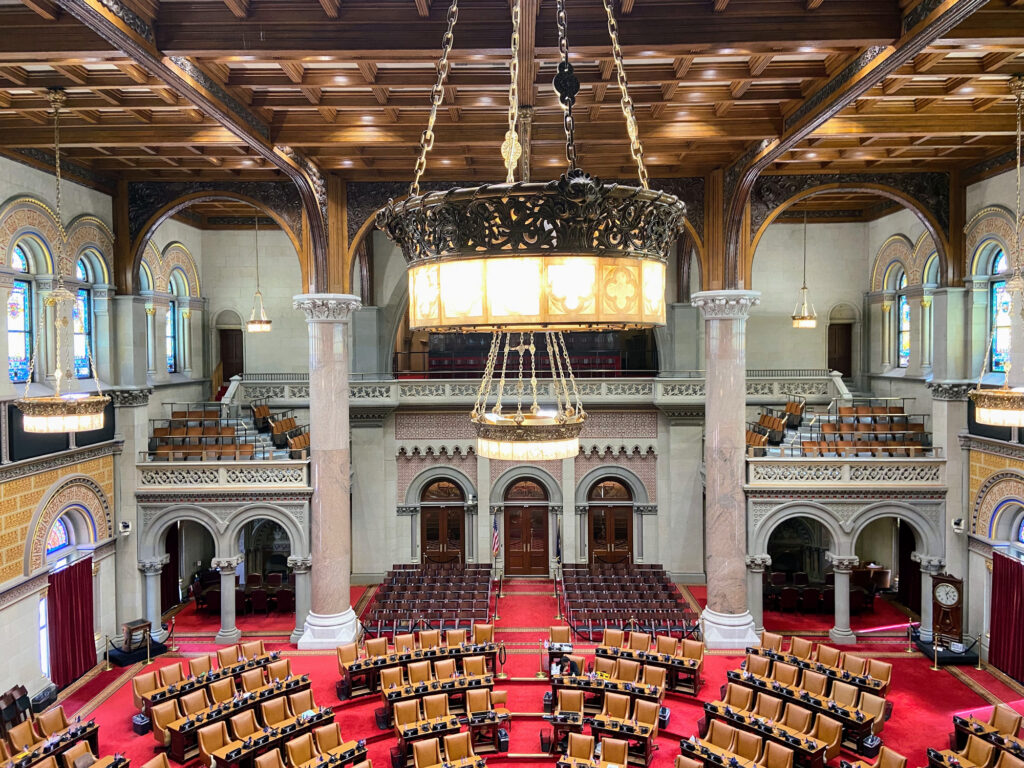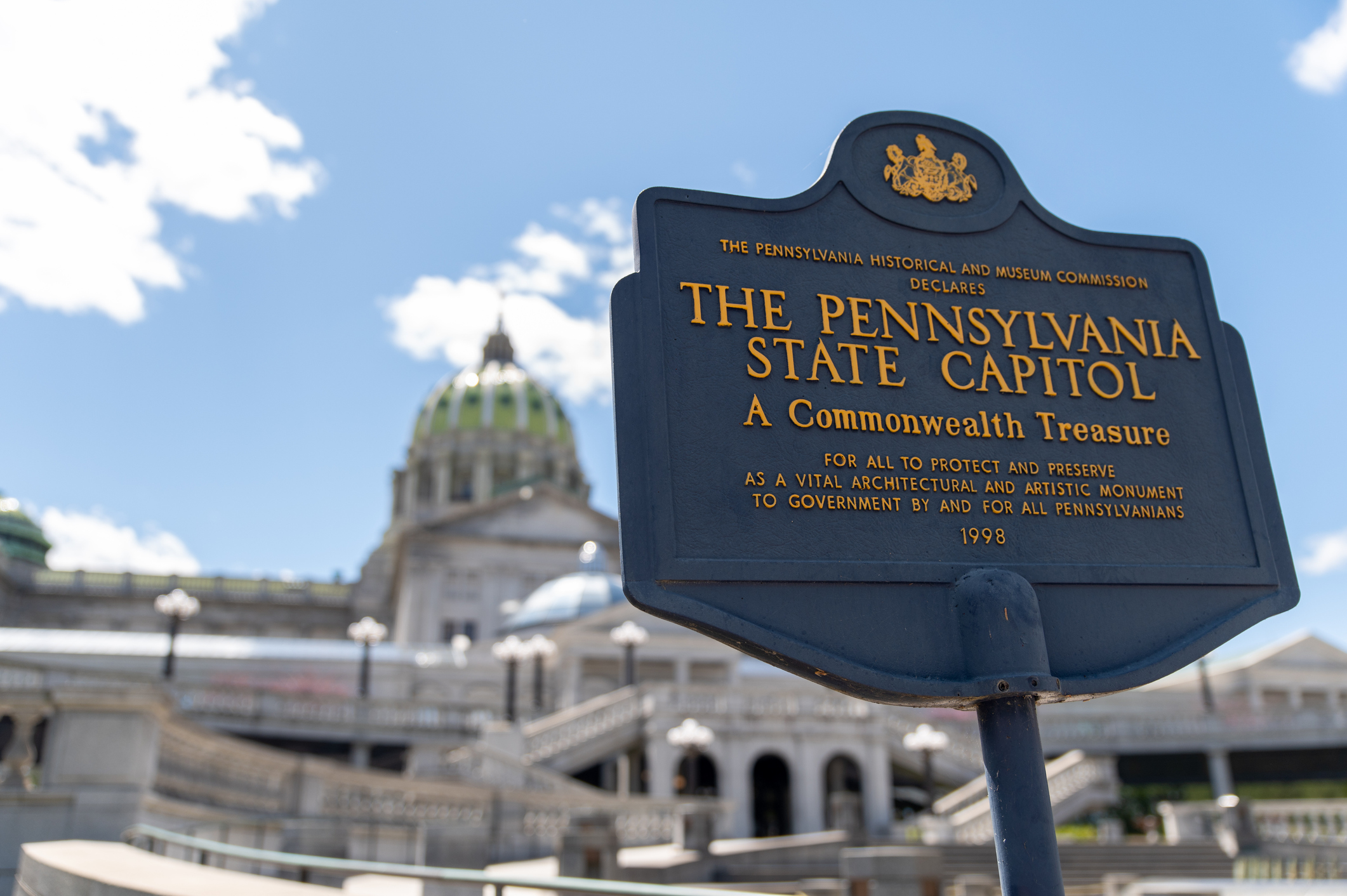
As the impacts of climate change intensify, several U.S. states are taking legislative steps to address the mounting costs of adaptation and resilience. New York, New Jersey, and Vermont have recently introduced or enacted laws aimed at seeking recompense from historical greenhouse gas emitters to provide funding for resilience projects. These “Climate Superfund” initiatives seek to recover billions of dollars from companies linked to significant emissions and allocate those funds toward infrastructure upgrades, disaster preparedness, and community resilience projects. Proponents of these measures argue that they help shift the financial burden from taxpayers back to emitters, while critics raise concerns about legal challenges, administrative feasibility, and potential consumer cost increases.
New York Governor Signs Climate Superfund Bill
At the end of December 2024, Governor Kathy Hochul (D) signed the Climate Change Superfund Act (A.3351-B/S.2129-B) that creates a Climate Change Adaptation Cost Recovery Program to address the financial demands of adapting New York’s infrastructure and communities to the effects of climate change. Under this program, entities that emitted significant amounts of greenhouse gas between 2000 and 2018 must pay into a newly established Climate Change Adaptation Fund. The program is designed to distribute the costs of necessary climate adaptation projects based on the proportion of emissions attributed to each entity during the covered period.
The collected funds, estimated at $3 billion annually for 25 years, will support various initiatives, including improvements to stormwater drainage systems, restoration of coastal areas, upgrades to energy-efficient public and private buildings, and health programs addressing climate-related challenges. The program also aims to prioritize equity, directing at least 35% of funding to projects benefiting disadvantaged communities. Additionally, the legislation incorporates labor protections, encourages job creation through apprenticeship programs, and requires using domestically produced materials in funded projects.
To ensure effective implementation, the bill mandates the creation of a statewide Climate Change Adaptation Master Plan to guide project selection and funding allocation. It applies a strict liability standard to greenhouse gas emitters, requiring payment without the need to prove misconduct. The legislation emphasizes shared responsibility for climate adaptation while seeking to balance the costs across responsible parties and the public sector.
Supporters argue that the law shifts the financial burden of climate adaptation from taxpayers back to emitters and draws on successful models like federal Superfund programs. However, critics contend the law is legally questionable, administratively complex, and could increase costs for consumers and businesses. Skepticism also surrounds the feasibility of collecting payments from foreign-based firms and the potential for lawsuits to hinder implementation.
New Jersey Lawmakers Introduce Climate Superfund Bill
In September 2024, New Jersey lawmakers introduced legislation (A4696/S3545) in both chambers to create a “Climate Superfund Act.” The legislation aims to create a framework for re-internalizing the costs of fossil fuel emissions. The bill would impact companies responsible for over one billion metric tons of greenhouse gas emissions between 1995 and the date the bill takes effect. The measure would establish a Department of Environmental Protection (DEP) program to calculate each company’s proportional share of responsibility, collect compensatory payments, and allocate funds to climate adaptation and resilience projects through grants. The collected funds will also support the program’s administration.
The legislation would require the state treasurer to submit a comprehensive assessment of climate-related damage to the state within two years of the bill’s enactment. Based on this assessment, the DEP would calculate and collect payments, with joint liability provisions for companies within controlled corporate groups. The state would use those funds for projects that address the impacts of climate change. Additionally, the bill would require annual reporting on program outcomes starting five years after enactment and require implementation regulations within two years of the damage assessment.
In December 2024, the Senate Environment and Energy Committee approved the bill, referring it to the Senate Budget and Appropriations Committee for further consideration.
Vermont Climate Superfund Cost Recovery Act Enacted Without Governor’s Signature
The Vermont Legislature passed the Climate Superfund Cost Recovery Act (S.259) in May 2024. It became law without the governor’s signature shortly thereafter. The bill establishes the Climate Superfund Cost Recovery Program, administered by the Vermont Agency of Natural Resources (ANR). The program seeks to recover costs from fossil fuel companies deemed responsible for significant greenhouse gas emissions between 1995 and 2024. Entities are classified as responsible if linked to at least one billion metric tons of emissions during this period. These entities are held strictly liable for a proportional share of the state’s climate-related costs, determined by their contribution to total emissions. The state treasurer is tasked with assessing the financial impact of these emissions on Vermont and its residents.
Funds collected through the program are deposited into the Climate Superfund Cost Recovery Program Fund and directed toward climate adaptation initiatives. These include projects outlined in the Resilience Implementation Strategy, state hazard mitigation efforts, and the Community Resilience and Disaster Mitigation Grant Program. The fund may also cover administrative costs associated with program operations. The act sets multiple effective dates, beginning July 1, 2024, and provides a structured approach to address climate adaptation while emphasizing economic accountability for environmental impacts.
From The Experts
Expert insights from the authors at Duane Morris Government Strategies.
Ryan Stevens
Proponents of these measures argue that they help shift the financial burden from taxpayers back to emitters, while critics raise concerns about legal challenges, administrative feasibility, and potential consumer cost increases.
Latest News
Photo credit: iStock.com/Niiaz Sabirov In 2025, several U.S. states have introduced legislation to prohibit geoengineering, defined as intentional large-scale interventions in Earth’s atmosphere or climate systems, such as cloud seeding or solar radiation modification. These [...]
Photo credit: iStock.com/Hamburg Studios As Pennsylvania continues to navigate an evolving energy landscape, state leaders are proposing new approaches to ensure reliability, affordability, and sustainability. Governor Josh Shapiro recently announced his “Lightning Plan”, a six-part [...]
In this episode of The Back in Session Podcast, hosts Ryan Stevens and Ryan DeMara are joined by Brendan Williams from PBF Energy. They delve into the state of energy policy, the refining sector, and [...]
Photo credit: iStock.com/Mikhail Dmitriev State lawmakers have taken legislative action to protect wildlife, including birds such as loons and swans, from lead poisoning. We have seen states pass laws banning lead sinkers or painted lead [...]






Stay In Touch